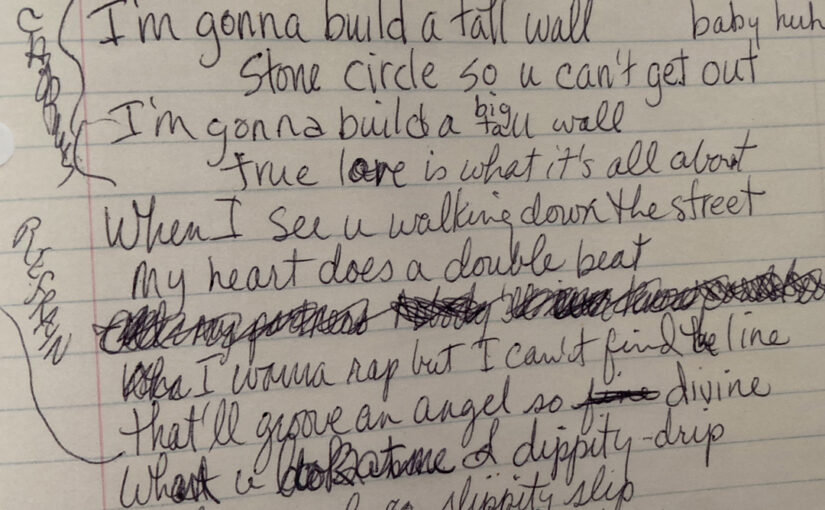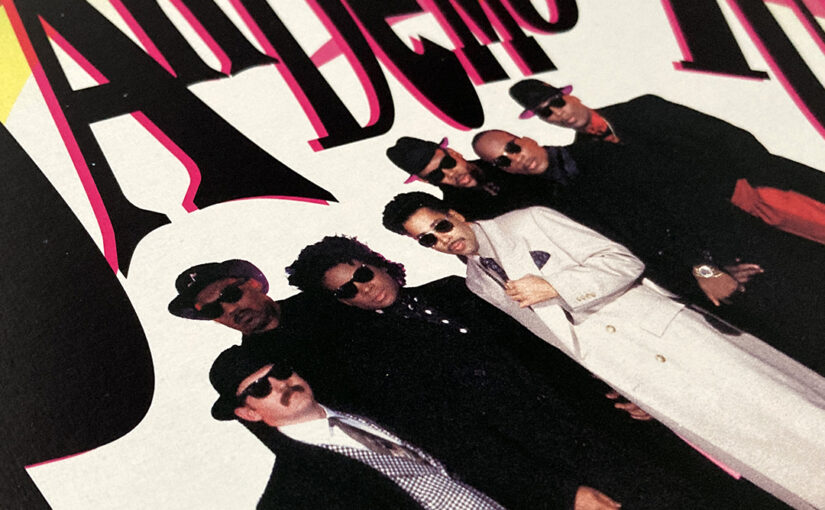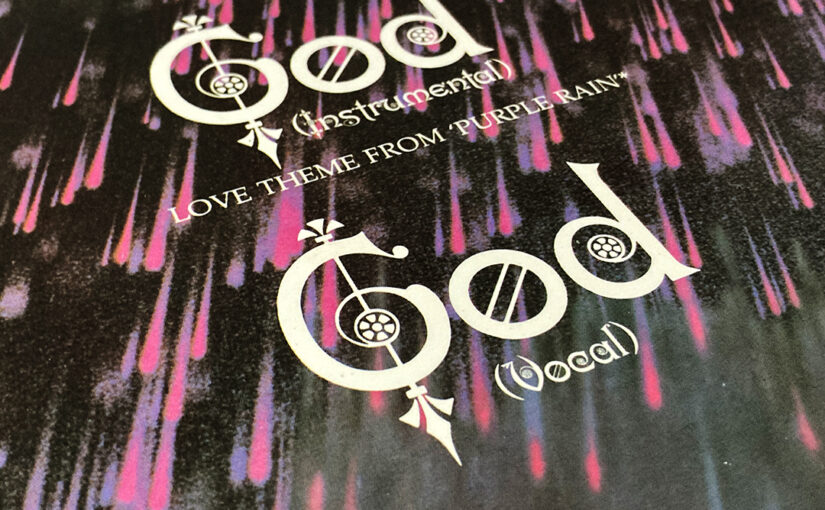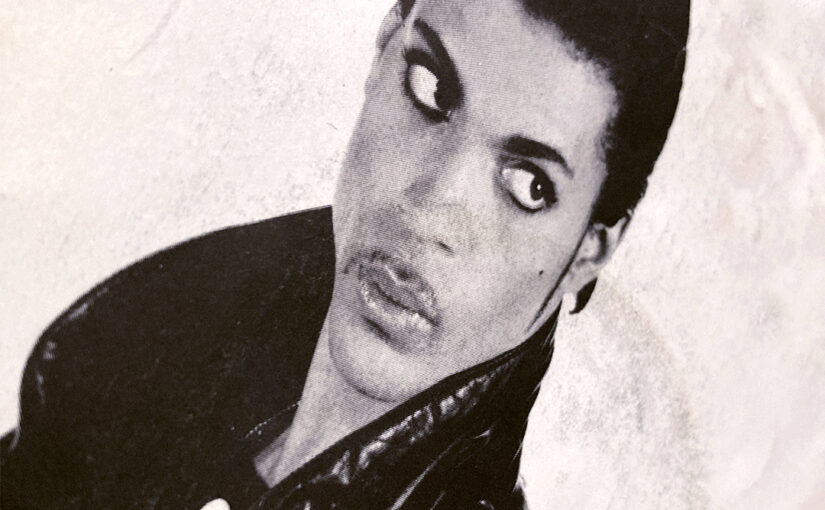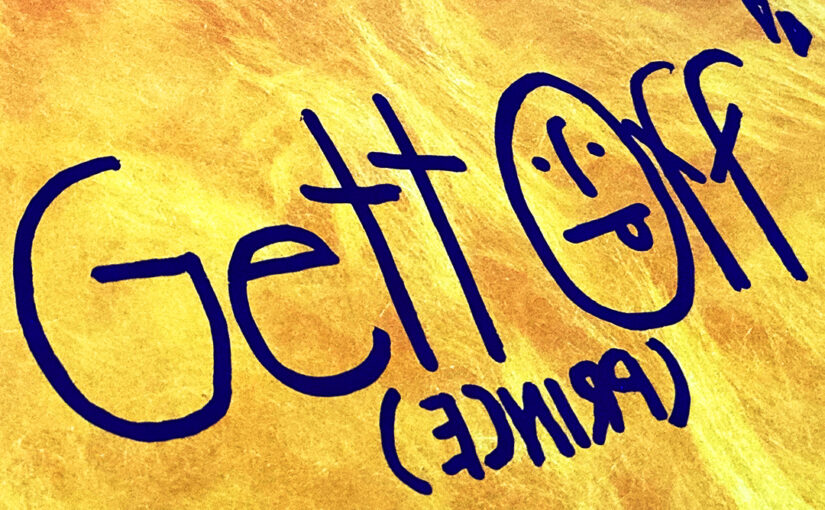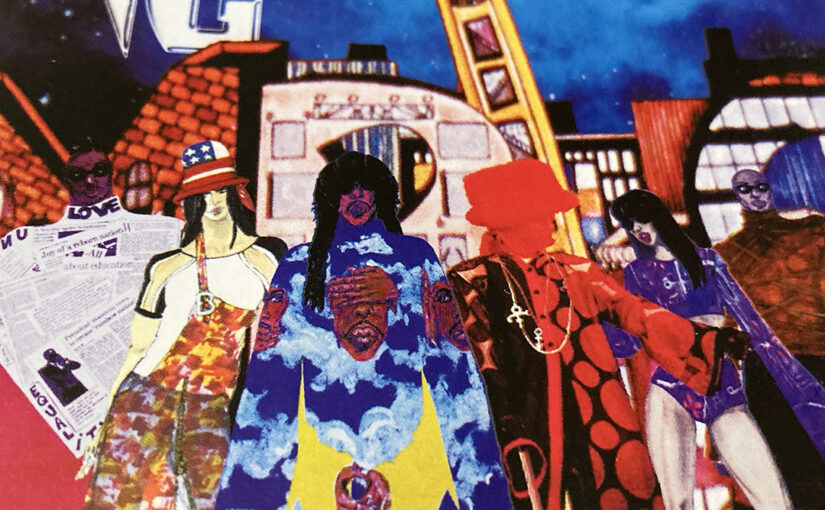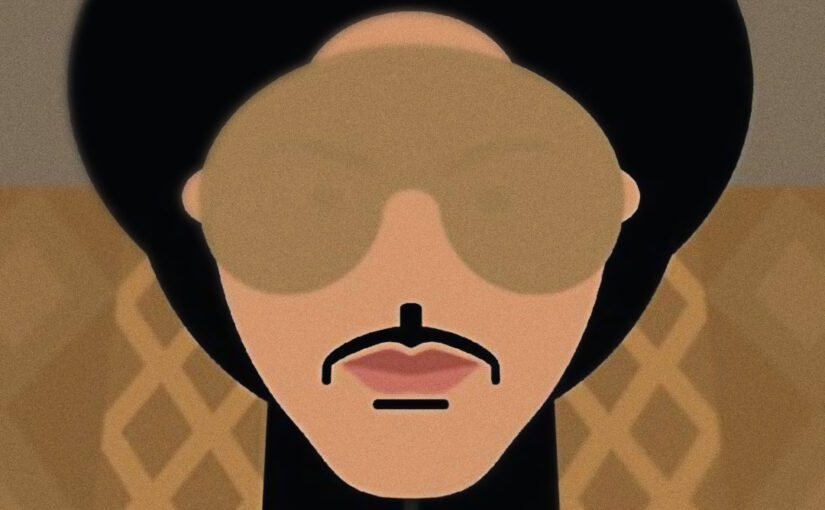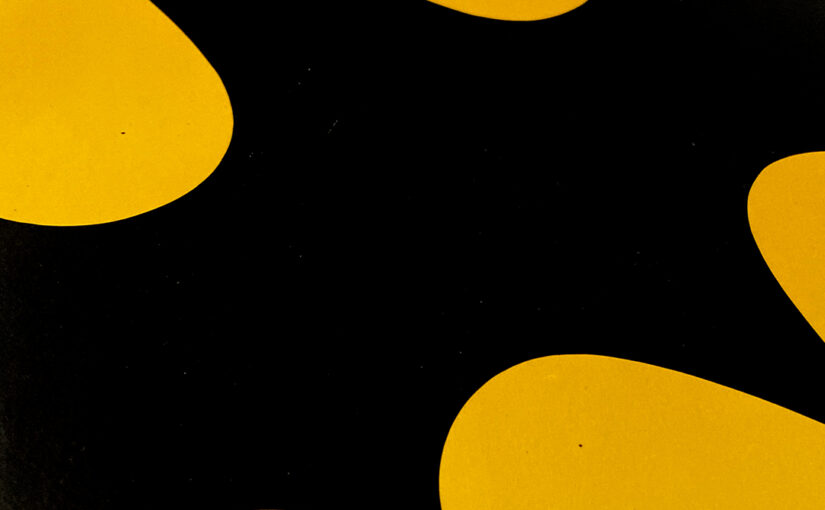Unreleased (1993) / Crystal Ball (1998)
The Ride appears on a multitude of live merch but the only official audio release was on Crystal Ball’s third disc – a fierce squall of live guitar realness amid a sea of Pro Tools tinkerings. It’s half the length of The Undertaker’s ur-recording but crams in the same amount of cocksure swag at double the intensity. Prince rides in on his Purple Rain motorbike, offers to take you to Lake Minnetonka, showboats with a few wheelies and then zooms off in a cloud of dirt and blues. In The Ride’s own words, if you like it real slow, the Undertaker version’s got days. But if you want to take the short cut, Crystal Ball knows the way.
189: Letitgo
Come (1994)
Long before Disney weaponised the phrase, Letitgo reached number 30 in the UK charts and was one of the few Prince songs I enjoyed before I became a fan. At the time I may not even have been aware who sung it, but it has merged with memories of long summers in the early to mid-90s, where R&B and soulful hip-hop drifted out of car windows like cigarette smoke. Even now I find it indelibly linked to tunes like SWV’s Right Here and Domino’s Ghetto Jam. Which raises an interesting dilemma. Do I rate these songs’ greatness on past feelings or their continued power to surprise and delight? I’m leaning more towards the latter. I still enjoy Letitgo but its moment in the sun has passed. Now it serves as a cloud of nostalgic fuzziness to sink into and reminisce. Nostalgia’s a fun drug but it will mess your life up. Just say no, kids.
190: Big Tall Wall
Unreleased (1986)
There’s not much adorning this big tall wall but its foundations are dug deep. Real deep. The music may consist of little more than a drumbeat and vocals; the lyrics, especially in their first draft, may be possessive, dark and even psychopathic. But once that hook is in your head it’s there for life. One of the reasons the song never saw the light of day was down to its personal and negative lyrics. They describe a polygamous Prince wanting to build a wall around then-girlfriend Susannah Melvoin so she can’t leave him. A rewrite the following year portrayed a slightly healthier relationship but there’s no altering the main premise of imprisonment – it’s baked in. Isaac Newton once wrote “we build too many walls, and not enough bridges”: a quote Prince may have had in mind when he originally planned for this song to start the Graffiti Bridge album, sitting next but one to the title track. Isolation to connection within the opening triplet. It would have done wonders for The Kid’s character arc but I guess the motivational, sloganeering Can’t Stop This Feeling I Got was more in keeping with the film’s final direction. You may prefer Prince’s high-energy cheerleading, but give me him on his mountaintop every time, banging his drum and plotting against the villagers down below like an angry witch.
191: Mellow
The Rainbow Children (2001)
Mellow by name and fully-reclined horizontal by nature, this song is a sultry sweet ballad, softly kissed with flutes and horns, but takes a swift X-rated turn towards the end. Another kink in the narrative that Prince turned PG post-2000. Mellow is one of his smooth seduction jams like Mr Goodnight or Underneath the Cream but despite oozing confidence and class it has a touch of the vulnerable If I Was Your Girlfriend. The begging and anxiety’s gone but the incessant desire to please remains the same. For you naked, I will dance a little comical minuet. Will that get you off? Then tell me what will. If you desire I’ll shed my attire? Anything to get you wet.
192: Chocolate
Unreleased (1983) / Pandemonium (1990)
In nature, there are foods high in fat, and foods high in sugar, but one of the only substances that’s high in both is breast milk. That’s why chocolate and other manufactured concoctions are so addictive – our bodies crave that sweet mother’s milk. Prince’s Chocolate is also insanely addictive but for the exact opposite reason. The funk is tight and lean. And his Jamie Starr persona (an “old nasty” James Brown impersonator asking us if we want to see his tootsie roll) is saltiness personified. Chocolate’s official release was by The Time in 1990 but the only band input is Morris on vocals. Everyone else you hear is either Prince, Wendy, Lisa or Jill. My cassette tape of Pandemonium has been lost to time so I often forget a version other than the Prince-sung demo exists. Yet regardless of lead vocalist, the song is double-dipped funk on a stick. Luxury confectionary without the sickly aftertaste of his later Chocolate Box.
193: Electric Chair
Batman (1989)
The Joker goes all Minority Report by putting his thoughts on trial and finding himself guilty for future crimes. The result is industrial rock hewn from rough onyx. Other than a short section in Batdance, Electric Chair is the only time on the album Prince lets loose with the axe, making it his last rock song of the 80s. But the funk is still close to hand. While you’re left reeling from the one-two punch of staccato chorus and sledgehammer kick drum, the bass nips in to mop up the blood and massage your back. A William Orbit remix, released on The Future single the following year, largely dispenses with the guitars and could be left in 1990 as far as I’m concerned, but you should definitely search out the unreleased, instrumental remix which ups the kick drum voltage to lethal levels. As did Electric Chair’s live debut on Saturday Night Live.
194: June
HITnRUN Phase One (2015)
The last track on Prince’s penultimate album is a gorgeous waif of a song, with stream-of-consciousness lyrics that invite you to pan for meaning. Here’s my interpretation. The lyrics reference Richie Havens and Woodstock. Havens’ opening set at Woodstock in 1969 ended with an improvisation of the old Spiritual Sometimes I Feel Like A Motherless Child. In June, after referring to Havens’ voice, Prince begins to repeat the title “sometimes I feel like…” but then switches to thoughts about his own birth, and then to a birthday somebody famous is having today. As June was written in June it’s fair to assume the birthday is his own, which is just “another full moon” to him as his religion doesn’t observe them. But even people who don’t celebrate the date must still take stock when another year gets added to the account. I think this song describes Prince daydreaming while cooking pasta on his 57th and final birthday. The Richie Havens song was playing either in the kitchen or on his mind’s turntable, and his mind wanders to thoughts of his deceased mother. You’re off somewhere being free, while I starve, in the lonesome cold. That line alone makes me want to shed a single Sinéad tear. As does hearing his version of Motherless Child where he changes the lyrics from “a long, long way from home” to “’cause you left me on my own”. The song and daydream end with the pasta burning. But the goosebumps remain long after the album’s finished.
195: Positivity
Lovesexy (1988)
On first glance, Positivity seems the least positive song on the album. The opposite of an uplifting closer. It lacks the ecstatic abandon of Lovesexy or the neon “yeah yeah yeah” lunacy of Alphabet St. Even the brooding darkness of Anna Stasia quickly ascends into beatitude. The ballads soothe, and Dance On moves but Positivity sits stern-faced, delivering affirmations in a downbeat voice over a mono-beat – a perfect inversion of the album opener, Eye No, which radiates “no”s over shapeshifting, ebullient funk. But sometimes the sweetest nuts are the toughest to crack. Concentrate on Positivity’s snare drum like a black dot on one of those optical illusions and the contradictions fade as the cheat codes to everlasting happiness begin to reveal themselves. The marimba dances in your peripheries. Wild beasts play in the marginalia. Moods drift. Trees fall. Walls collapse. Don’t get distracted. Hold on to your soul, you’ve got a long way to go. Karmic tornadoes buffet you, as do questions and temptations but stay focused on the tantric beat. Are those military drums? The snare is now a cowbell. When did that happen? I thought I asked you to concentrate on it? When the beat finally disappears look around you. You’re now bathing in the waters of your baptism, listening to the same synths that greeted you on the start of your Lovesexy journey. This time they’re not obliterated by Elysian fire. You’ve levelled up. The world is in a higher resolution yet somehow has softer edges. Is this the New Power Generation? Or Satori? Uplifting anthems are for n00bz. Where we’re going we don’t need major thirds.
196: Me Touch Myself
Unreleased (1989)
A fascinating outtake that occupies the space between Fever, Minnie The Moocher and Wade in the Water, yet with the self-love sentiment of stripper staple I Touch Myself. The weaving together of carnal desire and spiritual escape is strong in Me Touch Myself and not only in the hallelujah-peppered lyrics. The sultry beat and bassline are as seductive as Circe’s beckoning finger – or Ripopgodazippa performing the dance of the seven veils – but if you ignore the words the chorus could be an old African-American spiritual. There are not many songs that could sound at home in both a church and a strip joint.
197: Dreamer
Lotusflow3r (2009)
Prince travels to the sulphur mines of Jupiter to commune with the soul of Jimi through a fug of lotus-petal smoke. He returns with Voodoo Chile (Slight Return) (Slight Return) – a spiritual collaboration between two rock gods that only want to see you bathing in the Purple Haze. A lot of Prince’s music demand to be heard on headphones, as intricate subtleties that transform filler into killer are otherwise lost. Dreamer isn’t one of them. This should be played ear-bleedingly loud through speakers and the more lo-fi the better. It was dedicated to the late comedian Dick Gregory and picked up a grammy-nomination, but lost to boomer-idol Bruce Springsteen who won with some MOR dirge. Both nominations had dream in the title but while the Boss endlessly tells us he’s “working on a dream”, Prince graphically references MLK’s murder then stands next to the American dream and chops it down with the side of his hand. It was obvious which would receive The Establishment’s baubles.
198: 100 MPH
Unreleased (1984) / Mazarati (1986)
Mazarati’s 100 MPH is overcooked. The real flavour is in Prince’s cookie dough. His original demo has a stately intro that could serve as the national anthem to the city they built on Rock and Roll, but then the guitar gets ditched for a pop work-out consisting of a heavyweight bassline, a five-note keyboard riff and lyrics that sound written in slumber (forgive him if it goes astray). It all sounds so effortless. Prince on cruise control. After the song was casually tossed towards Mazarati for their only hit single, their initial reaction was to ask what else was on offer. This resulted in the band getting Kiss and then not getting Kiss but a lesson in gift horses and mouths instead. Oops. When you’re allowed to touch the hem of greatness you don’t get to pick the garment.
199: Vicki Waiting
Batman (1989)
Before Mayte, there was Anna Garcia – a girl Prince groomed from the age of 15 and had move in at 17. He renamed her Anna Fantastic and for her 18th birthday she received a coat of Pink Cashmere and the song Anna Waiting which later, with her permission, he recycled to make Vicki Waiting. The lyrics now included Batman references but kept intact was the penis-size joke that’s more Al Bundy than Tim Burton. Also left in were the quite personal lyrics about how Prince worries about having children. These took on a new poignancy for me when I realised I was mishearing the line “a new copy made”. I thought he was singing about Coffee Mate. You’re in good company Prince, no-one deserves non-dairy whitener.
200: Chaos and Disorder
Chaos and Disorder (1996)
Born out of the sea-foam of Peach, Chaos and Disorder was an after-show finishing coda that grew up to become the title track of Prince’s 18th album. It started off as the snarling riff you can hear at the climax of the Sacrifice of Victor video. Young and green but already red in tooth and claw, it soundtracks Mayte stage-diving into a pogoing crowd and ends with Prince smashing his guitar on the floor. Rock and roll that would shred the clothes on your back given half a chance. Studio time would later tame the beast into a song, adorning it with wry lyrics and forcing it to perform stunts with record scratches, Double Barrel samples and (proving the fruit doesn’t fall far from the peach tree) plenty of sound effects. Your clothes are now safe but maybe insure your guitar before cranking up the volume.
201: God
Purple Rain single (1984) / The Hits/The B-sides (1993) / Purple Rain Deluxe (2017)
God is not a song but a sound experiment in otherworldly, resonant frequencies. Alvin Lucier’s soul sits in a realm – different from the one you are in now – recording a feedback loop of his aura in the presence of God, while Prince hums a hymn to Him over the top. And over-the-top it is. The original instrumental has grace and is many people’s preferred version (helped by being relatively obscure for several years). But the shorter vocal take has the histrionics. If the scream in The Beautiful Ones had its own religion, this would be its Lord’s Prayer.
202: Annie Christian
Controversy (1981)
Bladerunner was still in production when this four-minute window into a neo-noir, dystopian world was set upon the world. A succession of events from the turn of the 80s are blamed on Annie Christian, the Anti-Christ. The Atlanta murders, John Lennon’s assassination, Reagan’s shooting, the Abscam political corruption scandal all get ticked off but if the references have dated, the techno-vibe sure hasn’t. Unlike later songs with an anti-gun message (Love Sign, Baltimore), Annie Christian isn’t coached in cosy, warm tidings. It’s cold, hypnotic, leftfield and weirdly, weirdly captivating. Like a proto-Sign o’ the Times where hurricane Annie has ripped the roof off civilisation and exposed all the bleakness inside. I’m not sure what Prince means by the line “I’ll live my life in taxicabs”. It could be a reference to living a stationless, rootless existence, but maybe it’s answered in the next album when he asks his lady cab driver to “drive this demon out of me”.
203: ♥ or $
Kiss single (1986)
Not to be confused with Love nor $, ♥ or $ is the Under The Cherry Moon plot summed up in four characters. A seven minute (go full-length or go home) funk mantra where Prince says he could play for days and sounds like he does. Time begins to lose meaning. Somewhere along the way, Eric Leeds makes his debut (as do titular hieroglyphs) but underneath the sax flourishes and guitar overdubs lies a trance-inducing, hypnotic beat and incantation, a full year before techno started to twinkle in Derrick May’s eye. While you’re getting your joy in repetition on, Prince is speaking to your lizard brain and rewiring your neurons – who knows what secrets he’s engraving on your amygdala? There’s a reason it wasn’t included on 1993’s B-sides compilation and it wasn’t down to quality control.
204: Horny Pony
Gett Off single (1991)
Forget the Bird, the Walk and the Housequake, we have a new dance commercial and it’s called the Horny Pony. A cartoon sex dance for those who found Le Grind too subtle. The song was elbowed from Diamonds and Pearls to make room for Gett Off but its hoofmarks were left all over the album. It’s mentioned in Push, crossed out on the back cover tracklisting and Jughead is introduced as its second take. Horny Pony gets just as stoopid as its twinned brother-in-goof but being a b-side (and lacking Tony M) stops it from receiving Jughead’s same ire. You also can’t hate on a song that’s responsible for the careers of both Timbaland and Ginuwine (they debuted with a song about a horny pony five years later). Prince had a pony obsession in the few years leading up to 1990. Along with mentions in Alphabet St, Le Grind and The Future, it’s also the title of at least three vault tracks from around then and his Graffiti Bridge mane was surely inspired by the Hasbro My Little Pony toys. Maybe he was dropping hints for Santa? Somebody shoulda ran and told his mama about that!
205: Pheromone
Come (1993)
Prince once said the inspiration behind Pheromone was Carmen Electra and a Parisian burlesque club. But none of that matters. What matters is where you take it. The Artist paints an imperfect picture – a picture of voyeurism, sexual domination and pulp fiction – and on his last stroke hands you the brush to finish the canvas off. It’s a sleight of hand that sidesteps any complaint about the song’s dark imagery – the listener’s not just an accomplice, they become the author. Was it all a game? An act of violence? Both? You’re the storyteller now my friend. “What happens next: it all depends on your style”. And whether or not you believe in Chekhov’s gat.
206: Big Fun
Exodus (1995)
“Big fun” is a phrase seldom heard in real life, but used endlessly in pop music. It’s given us Inner City and Kool & The Gang hits; Miles Davis and Shalimar albums; and is the name of at least three bands. As a euphemism it’s infantilising but in Prince’s hands, or more specifically Sonny T’s, Big Fun sounds seductively sordid. A siren song of liquidized George Clinton poured into a seven-minute come on. The track shares elements with Poom Poom and unwinds like the Crystal Ball number swollen on party vibes and grown to an adult sea serpent. P-funk tendrils coil around your hips and lure you lair-wards. Danger signals flare and you’re even warned your safety is not guaranteed but you’re too busy wrapped up in its promises of Darling Nikki’s devices to notice. Just a vague feeling persists that you should resist the insistent pull but your head can only bob affirmations to its forbidden rhythm. I doubt Barry Manilow’s Big Fun has the same effect.
207: Black Muse
HITnRUN Phase Two (2015)
This masterclass in retro kitsch has a baseline so cocky it makes you feel you can walk through walls. Imagine a Bob James and the New Birth penned theme tune for a cop show starring Burt Reynolds as the renegade who doesn’t play by the book, and Pam Grier playing the hooker with a heart of gold. As the song drifts towards the “1000 light years from here” hook the air gets thinner and you’d be forgiven for believing you momentarily passed out from altitude sickness and woken up during a different song (that’s because it initially was). Here, the bassline has long stopped holding your hand and you’re spiralling towards a valium cloud of nostalgic bliss. A new day is dawning and it’s called 1978.
208: Damn U
O(+> (1992)
Prince adored Damn U and wanted it on 1993’s The Hits compilation despite the single bombing in the charts. In a list he sent to manager Alan Leeds, who was writing the liner notes, Prince describes it as one of the songs he was most proud of. He’d always be biased towards the new, especially on such a backwards-looking project, but the pride isn’t misplaced. Damn U is exquisite. The singer swoons and croons as if possessed by the souls of Marvin, Curtis, Stevie and the entire Ratpack, while Clare Fischer’s strings sail you down the Euphrates to get drunk on honey wine and to make love under the gods. It doesn’t last long though. The smattering of polite applause at the end soon brings us back in the room to witness the dense mania of Arrogance arriving like a salt brick to the face.
209: Life Can Be So Nice
Parade (1986)
One of the catchiest songs about scrambled eggs, second only to the theme tune from Frasier. Life Can Be So Nice is a humanist anthem, like What a Wonderful World, but with a message that’s hard not to take as an AM equivalent to Afternoon Delight. It comes crashing into this world with squealing flutes, makes a lot of reverbed noise, then abruptly finishes mid-sentence. If that’s not a tribute to the brevity and wonder of life then I’m Louis Armstrong.
210: Shy
The Gold Experience (1995)
The footsteps that sync with the first minute of Shy lead us into a tale of revenge killing and gang initiation. It’s all over the top and even the singer believes he’s being spun a yarn, but we’re suckered in like a surprisingly good TV movie. It certainly sounds like one. You can almost see the red street lights reflecting in puddles as the opening credits roll. A lone figure walking with their back to us, soundtracked by city noise and a lone tambourine. And then we’re taken on a rain-drenched journey while Prince’s guitar gently weeps… and shouts and laughs and teases. The use of slide is reminiscent of Vicki Waiting – another song about an attractive girl amid urban decay – and adds to the early 90s movie vibe. If it were a film, it would be one of those where you’re left feeling exhilarated at the end, despite not being able to recall a single plot detail.
211: Boom
Lotusflow3r (2009)
Prince stalks the Earth dealing out thunderbolts from his guitar like an Old Testament god. Cosmic rock? BOOM! Psychedelic Lyrics with backward messages? BOOM! Interstellar riffs threatening to take out the sun and turn all dark matter to light? BOOM! Lotusflow3r’s languid opening track was like bathing in the primordial oceans and Boom is the Cambrian explosion. Later it would mate with Billy Cobham’s Stratus and give birth to a new galaxy called rock and roll.
212: Feel U Up
Unreleased (1981) / Partyman single (1989)
Ahh Camile. Feel U Up was a below-par outtake and if you hadn’t revived it with your patented brand of sleaze it would have remained a Controversy-era footnote, notable only for providing the horns for (I Like) Funky Music. Camille vocals improve any song. Fact. It’s no coincidence all but one song recorded for the Camille album found a home elsewhere when the project was abandoned. And the one that got away was Rebirth of the Flesh, his greatest unreleased track IMHO. Feel U Up has Irresistible Bitch drums (back in the day it was part of the same sequence) and it’s almost as perversely persuasive. But use responsibly. I’ve just listened to the long stroke version three times in a row – turned up extra loud to drown out a group of singing Santas on my train – and I think I may have irrevocably damaged a part of my brain. The human body isn’t designed to withstand hearing that amount of diseased desire.



